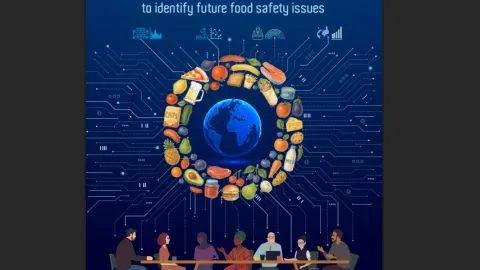News European Union
Please note that you have to be a registered member with paid membership in order to see full articles.
Become a MemberSelected News
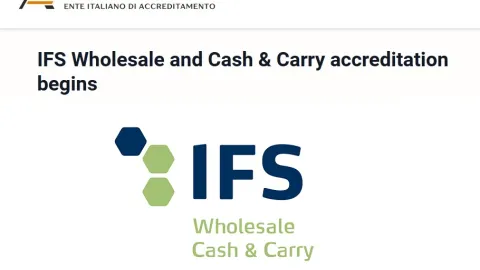
Accredia Opens Accreditation for IFS Wholesale and Cash & Carry Version 3
Italy’s national accreditation body, Accredia, has opened accreditation for certification under the IFS Wholesale and Cash & Carry version 3 standard,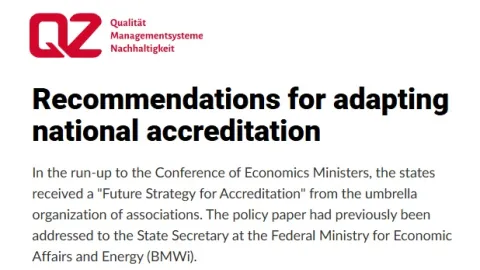
German Industry Groups Present Broad Reform Plan for National Accreditation
A wide alliance of German industry associations, laboratory organizations, and sectoral trade bodies has presented a future strategy to improve the national accreditation system, calling for simpler procedures, clearer responsibilities, and faster decisions.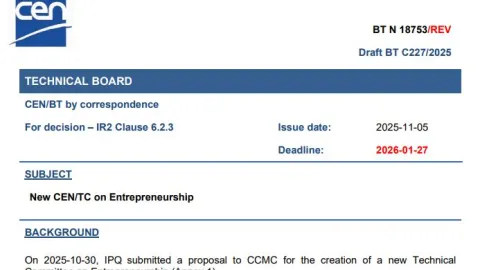
Proposed CEN Technical Committee on Entrepreneurship to Advance Startup Standards
The Portuguese Institute for Quality (IPQ) has submitted a proposal to create a new Technical Committee (TC) on Entrepreneurship within CEN.
Italy Introduces Single Certification for Fashion To Boost Supply Chain Transparency
Italy’s annual bill for small and medium enterprises proposes a voluntary single certification of conformity for the fashion supply chain,
AFNOR Concludes Review Round for ISO 22000 Revision
The review of the revision of ISO 22000 has concluded at AFNOR after a week of discussions.
RvA Updates Rules for Conformity Assessment Schemes and Scheme Managers
The Netherlands Accreditation Council (RvA) has released a revised version of its Accreditation Specification ASR007, which sets the requirements for conformity assessment schemes and the organizations that manage them.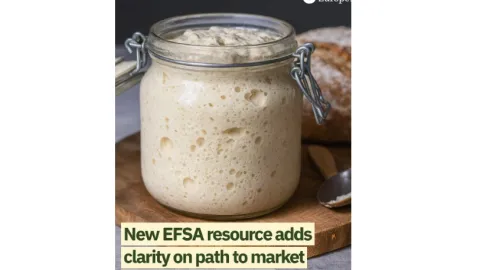
EFSA Issues New Guidance to Help Companies Bring Microbial Food Products to EU Market
New guidance from the European Food Safety Authority (EFSA) explains how applicants should prepare submissions for food products that contain, use, or are made with microorganisms under the EU’s food-safety approval system.
25th National Awards of the Czech Republic Honor ČEZ and Prague 13 as Absolute Winners
ČEZ and the Prague 13 Municipal District were named the absolute winners of the 25th National Quality Awards of the Czech Republic at a formal award ceremony held on November 20, 2025, in the Main Hall of the Wallenstein Palace in Prague.
ISO 45001 Becomes Key Reference in Italy’s New Workplace Safety Decree
Italy’s new workplace safety measure, the Law Decree of October 31, 2025, updates national rules by making ISO 45001 the main reference for occupational health and safety systems.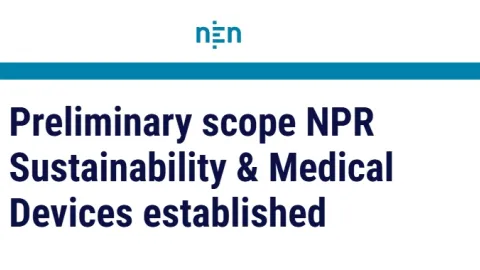
NEN Sets Initial Scope For New Guideline On Sustainable Medical Devices
The Netherlands Standardization Institute (NEN) has set the initial scope for developing a new Dutch Practice Guideline (NPR) on sustainability in medical devices.
Spain Issues First ISO 27701 Accreditation to Bureau Veritas Iberia
Bureau Veritas Iberia has become the first body in Spain to receive accreditation from the Spanish National Accreditation Body (ENAC) to certify privacy information management systems under UNE-ISO/IEC 27701:2021.
ENAC Passes OECD Good Laboratory Practice Assessment With No Deviations
The National Accreditation Body of Spain (ENAC) has passed the Organisation for Economic Co-operation and Development (OECD) assessment of its Good Laboratory Practice (GLP) oversight programs with no deviations.Global News
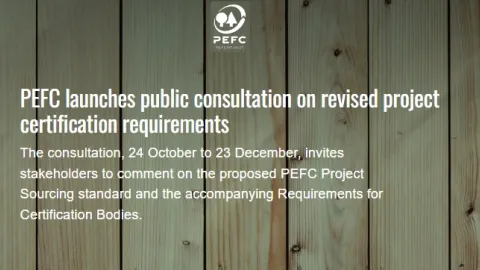
PEFC Launches Consultation on Updated Project Sourcing Standard and Requirements
PEFC International has opened a 60-day public consultation, running from October 24 to December 23, to review proposed updates to its project certification requirements.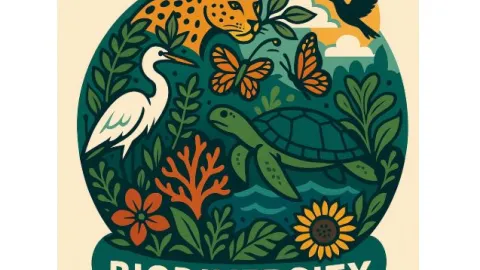
ISO 17298 Embeds Biodiversity in Business Strategy, Signaling a Shift in Finance
The International Organization for Standardization (ISO) has released ISO 17298, a new global standard that makes biodiversity part of business strategy and financial decision-making.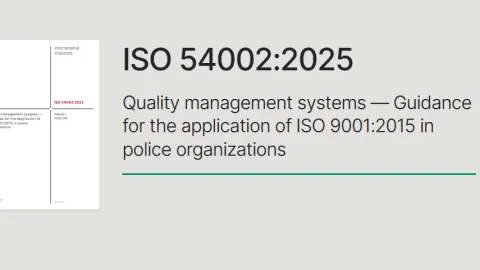
ISO 54002 Guides Police in Applying ISO 9001 Principles
The International Organization for Standardization (ISO) has published ISO 54002:2025, a new guidance document to help police organizations apply the requirements of ISO 9001:2015 in their operations.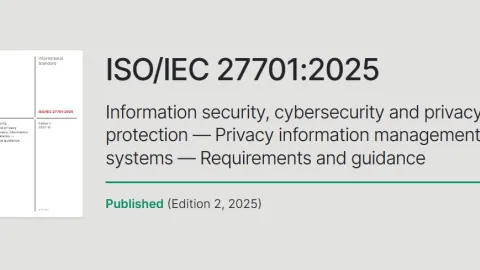
Updated ISO 27701 Now Offers Standalone Privacy Management Certification
The 2025 update of ISO 27701 marks a major shift in privacy management, turning the standard into a fully independent, certifiable framework.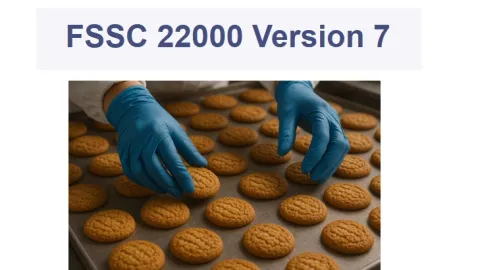
Work Begins on FSSC 22000 Version 7
The Foundation FSSC has started developing Version 7 of the FSSC 22000 certification scheme.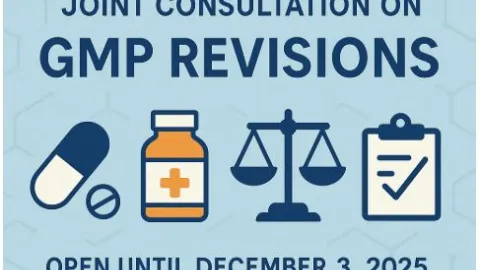
PIC/S and EMA Seek Feedback on Pharmaceutical Quality System in GMP Guide
The Pharmaceutical Inspection Co-operation Scheme (PIC/S) and the European Medicines Agency (EMA) have launched a joint consultation on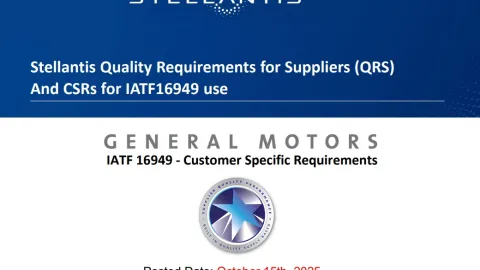
GM and Stellantis Update Customer-Specific Requirements for IATF 16949 Certification
General Motors and Stellantis have both issued updates to their customer-specific requirements (CSRs) under the automotive quality management standard IATF 16949.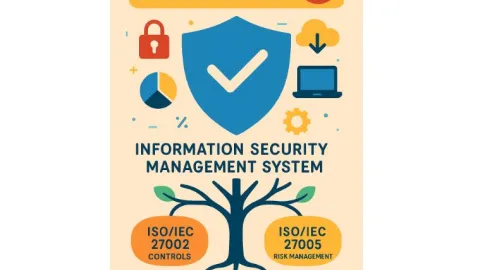
Two Decades as Cornerstone of Information Security Management: ISO 27001 Turns 20
The international standard ISO/IEC 27001 has turned 20, continuing to serve as the main global reference for information security management systems (ISMS).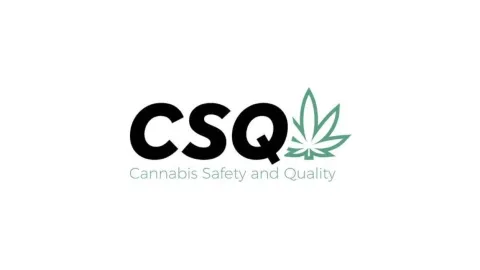
CSQ 2.0 Launched: Cannabis Safety and Quality Certification Revision
The Cannabis Safety & Quality (CSQ) organization has launched the finalized CSQ 2.0 Certification Program,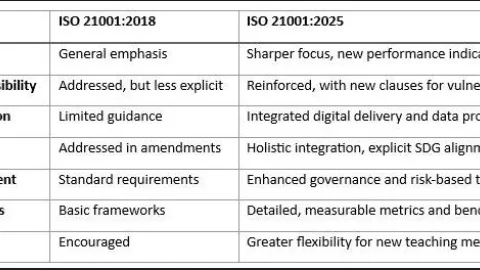
Updated ISO 21001 for Educational Management Moves Focus to Learners and Sustainability
The International Organization for Standardization (ISO) has released the second edition of its Educational Organizations Management Systems (EOMS) standard, ISO 21001:2025.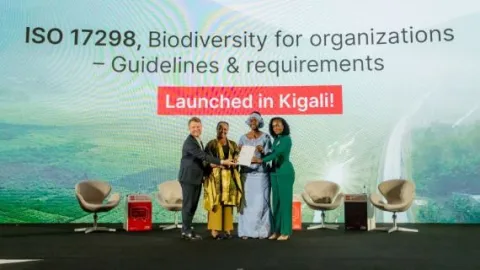
First Global Standard for Organizational Biodiversity Action: ISO 17298 Launched in Kigali
The International Organization for Standardization (ISO) has released ISO 17298, the world’s first international standard to help organizations take measurable and accountable action on biodiversity.